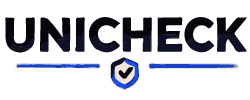Diploma in Ports and Shipping Management
Cut-off Points
42
Diploma in Ports and Shipping Management Overview at Regional Maritime University
The Diploma in Ports and Shipping Management is a comprehensive program designed to equip students with the knowledge, skills, and expertise required to succeed in the ports and shipping industry. Offered by the Regional Maritime University, this diploma program falls under the Business Maritime Programmes in the College of Business and Management Studies. With a minimum cut-off point of 42, this program is ideal for students who wish to pursue a career in the maritime sector.
The program is structured to provide students with a deep understanding of the principles and practices of ports and shipping management, including maritime law, logistics, and transportation management. The curriculum is designed to meet the needs of the industry, ensuring that graduates are well-prepared to take on key roles in ports and shipping organizations.
Curriculum Highlights
The curriculum of the Diploma in Ports and Shipping Management covers a wide range of topics, including:
- Introduction to Maritime Transport
- Port Management and Operations
- Shipping Law and Practice
- Logistics and Supply Chain Management
- Maritime Economics and Finance
- Transportation Management
These courses are designed to provide students with a comprehensive understanding of the ports and shipping industry, as well as the skills and knowledge required to succeed in this field.
Learning Outcomes
Upon completion of the Diploma in Ports and Shipping Management, graduates will be able to:
- Analyze the principles and practices of ports and shipping management
- Apply knowledge of maritime law, logistics, and transportation management to real-world scenarios
- Evaluate the impact of global trends and developments on the ports and shipping industry
- Demonstrate effective communication and teamwork skills
- Apply problem-solving and critical thinking skills to resolve complex issues in the ports and shipping industry
These learning outcomes are designed to ensure that graduates are well-prepared to take on key roles in ports and shipping organizations, and to make a positive contribution to the industry.
Program Duration & Structure
The Diploma in Ports and Shipping Management is a two-year program, consisting of four semesters. The program is structured to provide students with a combination of theoretical and practical knowledge, including lectures, tutorials, and practical exercises. The program also includes a period of industrial attachment, which provides students with the opportunity to gain practical experience in the industry.
Why Choose This Program?
The Diploma in Ports and Shipping Management at Regional Maritime University is an ideal choice for students who wish to pursue a career in the maritime sector. The program offers a unique combination of theoretical and practical knowledge, as well as the opportunity to gain practical experience in the industry. The program is also designed to meet the needs of the industry, ensuring that graduates are well-prepared to take on key roles in ports and shipping organizations.
Additionally, the program is offered by a reputable university with a strong reputation for academic excellence, and is recognized by the industry as a leading provider of maritime education and training. The program is also affordable, with a competitive fee structure that makes it accessible to students from a wide range of backgrounds.
Program Highlights
Program Level
Diploma
Field of Study
Business & Management Studies
Cut-off Point
42
Institution
Regional Maritime University
University Information
Institution
This program is offered at: Regional Maritime University
College/Faculty
Business Maritime Programmes
Related Programs
Diploma in Tourism and Hospitality Management
Cape Coast Technical University
Diploma in Hospitality and Institutional Management
Cape Coast Technical University
Available Scholarships
Joseph and Elizabeth Quansah Foundation Scholarship
Joseph and Elizabeth Quansah Foundation
Learn More →